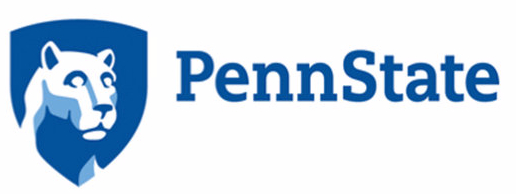|
|
Classroom Idea
|
To celebrate Financial Capability Month in April, the
PwC Charitable Foundation released a series of three short videos featuring conversations about money with students. A PwC representative was joined by rapper Dee-1 and three students in grades 2 - 6 from a school in Harlem, New York to discuss
borrowing,
saving, and
paying for college.
Watch the videos and consider: Would your students answer the questions the same or differently? How might you use videos of students answering questions such as these? What might high school students learn by interviewing younger students on money topics or vice versa?
Below are links to the videos and the questions posed in each:
- Borrowing (video 1:53) Have you ever borrowed money before? What does it mean to borrow something? What might you borrow money for? Has anyone heard the term 'interest?' What does the term financial literacy mean?
- Saving (video 1:28) Is it better to save money or spend money? Where do you save your money? What's the most fun part about going into a real bank? What do the words financial literacy mean?
- Paying for College (video 1:51) How much does college cost? If you didn't save enough and you still wanted to go to college, where do you think you can get the money? What if you needed to borrow $3,000 and they said, "You can borrow $3,000, but when you pay me back I want you to pay me back $5,000?" If you borrow money to go to college and you don't graduate from college, do you still have to pay that money back? What does the term financial literacy mean?
|



|
|
 Flash Survey to Improve Access to Financial Education; $300 in Prizes Flash Survey to Improve Access to Financial Education; $300 in Prizes
|
Professional Information
|
Five minutes of your time can have a meaningful impact on increasing access to financial education!
Next Gen Personal Finance needs your insights to craft an advocacy strategy so the nation can move well beyond the 20% of high school students who currently access a personal finance course. Whether you were already successful in making personal finance a graduation requirement or need help to do so, they want to hear from you!
Results will be shared with the public, and the results will be critical to informing advocacy strategies and resources for teachers.
Click here to take this five-minute survey, which will be open from through May 30th. All respondents will be entered into a drawing, in which three $100 Amazon gift cards will be awarded.
|


|
|
 Mark Your Calendars for the 2017-2018 Making Cents Webinars Mark Your Calendars for the 2017-2018 Making Cents Webinars
|
Professional Development
|
Have you ever joined a
Making Cents Webinar for Pennsylvania Teachers? If not, you are missing out! These free, 90-minute professional development opportunities offer information on financial topics, resources for teaching personal finance topics to students, and professional information for teachers.
Mark your calendars for the dates of the 2017-2018 Making Cents Webinar Series All webinars are offered at two times on each date: 3:00 p.m. to 4:30 p.m. and 6:30 p.m. to 8:00 p.m.
September 27, 2017
October 25, 2017
November 15, 2017
December 13, 2017
January 24, 2018
February 28, 2018
|

|
|
 Terms New Savers Should Understand Terms New Savers Should Understand
|
Professional Information
|
As the high school graduates of 2017 are launched into life on their own, many may follow the sage advice of parents, teachers, or community members about saving money. For many of these young adults, saving money may be a new experience and with any new experience learning new words may be part of the course. Key terms that need to be understood related to saving include compounding, federally insured institutions, savings account, money market deposit account principal, interest rate and annual percentage yield. While the savings habit can be started without full knowledge of these terms, savers who do not understand the terms may not save in a way that is to their advantage. Following is a short description of saving key terms.
Annual Percentage Yield Annual percentage yield (APY) is the percentage that is based on the total interest you would receive for 365 days given an institution's annual simple interest and compounding frequency. The APY is a tool consumers can use to compare how their money grows in the same types of accounts at different banks or credit unions.
Compounding Essentially this means that interest will be paid on the amount you deposit in a savings instrument (principal) plus the interest earned on the deposit. In short, you will earn interest on your principal and interest each compounding period (monthly, quarterly or yearly). Compounding helps your account balance grow faster. Generally, the more frequent the compounding period, the faster your account value grows. For a visual on the effects of compounding for consistent amounts saved, experiment with the
Council on Economic Education's Compound Interest Calculator.
Federally Insured Institutions Banks and credit unions that display the FDIC and NCUA symbols provide peace of mind that the money in the account, up to $250,000, will not be lost if the bank fails or closes.
Interest Rate Money the bank or credit union pays you when you deposit money in a savings or money market deposit account. The higher the interest rate, the more money you will be paid for leaving your money on deposit with the financial institution.
Money market deposit account. An account that usually earns a slightly higher interest rate than a savings account. However, the number of withdrawals per month is limited. Money market deposit accounts are available at banks and credit unions.
Principal The amount of money you deposit into an account.
Savings Account A deposit account at a bank that usually permits unlimited deposits and withdrawals during a given time period. At credit unions, a savings account is called a share account.
If you can motivate soon to be high school graduates or other young adults to start saving money with their first paycheck, you will have given them a gift that continues to give well into their future.
Tip:
If you need a quick graduation gift, clip this article and tuck it in the envelope with your cash gift to a new graduate.
|

|
|
 New Star Banks Adventure Teacher Dashboard Feature New Star Banks Adventure Teacher Dashboard Feature
|
Classroom Tool
|
T. Rowe Price has launched a
Teacher Edition of the Star Banks Adventure game, a free app and online experience designed to teach kids financial concepts while having fun. The game was designed with a tile-matching concept to engage kids quickly and to reinforce the financial concepts embedded within the game.
The new edition of the award-winning game, which has been downloaded 423,000 times since its launch in 2015, was created to help teachers integrate the game into their lesson plans on financial education. The game was also designed to help both teachers and parents gain insight into what financial concepts their kids understand and which concepts may need more explanation and opportunity to practice.
The Star Banks Adventure game will appear the same to kids, but the new version offers a Teacher Dashboard to assist in administering the game in the classroom. Additionally, the dashboard provides statistics that help teachers compare their classrooms with others and track individual students' progress.
With educational content created by professionals at T. Rowe Price, the Star Banks Adventure game simplifies basic financial concepts and focuses on:
- Setting a financial goal
- Prioritizing spending
- Rate of return
- Asset allocation
- Inflation and time horizon
- Diversification
The Star Banks Adventure
game is available for download on iOS and Android ® devices and online at starbanksadventure.com. More information about the game and additional financial education resources can be found on
MoneyConfidentKids.com
.
|

|
|
 Federal Reserve Bank of Philadelphia Professional Development Opportunities
|
Professional
Development
|
Join the Federal Reserve Bank of Philadelphia this summer for their professional development programs for teachers. At the Philly Fed's programs, you and your colleagues will receive valuable materials and training for teaching economics and personal finance in your classrooms. And, you can use the lessons plans and activities right away when you return to school in August and September.
Keys to Financial Success
This program acquaints high school teachers with the curriculum and content necessary to teach their own Keys to Financial Success course. In Keys to Financial Success, students learn the knowledge, skills, and processes required to make sound financial decisions and manage their own personal finances.
When: July 10-14, 2017; 8:00 a.m.-3:30 p.m.
Who: Grades 9-12 teachers
Credit: 30 hours of Act 48 credit
Fee: $50
Making Sense of Money and Banking
This program introduces you to innovative lessons and activities for teaching about money, banking, and the Federal Reserve. The program includes a walking tour of the First and Second Banks of the United States and grade-level curriculum sessions.
When: July 24-28, 2017; 8:00 a.m.-3:30 p.m.
Who: Grades K-12 teachers
Credit: 30 hours of Act 48 credit
Fee: $50
Money Matters for Kids
This one-day professional development program introduces teachers to the Financial Fitness for Life curriculum for grades K-2. Teachers will learn methods for teaching personal finance topics, such as choices, wants, costs and benefits, money, saving, spending, and banking basics.
When: August 15, 2017; 8:00 a.m.-3:30 p.m.
Who: Grades K-5 teachers
Credit: 6 hours of Act 48 credit
Fee: $10
Economic Forces in U.S. History
From Alexander Hamilton and the first Bank of the United States through the Great Recession, economic forces have played a vital role in U.S. history. In this program, hear from experts, work with primary source documents, collaborate with fellow educators, and participate in demonstrations of lessons that you can take back to your classrooms.
When: June 27-29, 2017; 8:00 a.m.-3:30 p.m.
Who: Grades 6-12 teachers
Credit: 18 hours of Act 48 credit
Fee: $30
World History and Economics
This one-day professional development program introduces middle and high school teachers to a series of simulations, role-playing activities, group activities, classroom demonstrations, and informational texts designed to effectively teach students about world history and economics. The session makes use of the Council for Economic Education's Focus: World History lesson book.
When: August 3, 2017; 8:00 a.m.-3:30 p.m.
Who: Grades 6-12 teachers
Credit: 6 hours of Act 48 credit
Fee: $10
The Philly Fed's teacher-training programs are offered at their easily accessed headquarters on Independence Mall in Old City Philadelphia. With easy access to SEPTA and PATCO, and many options for parking nearby, they are centrally located to provide professional development programs for K-12 teachers from across the area. For driving and mass transit directions and a list of nearby parking locations, visit www.philadelphiafed.org/about-the-fed/visitor-information.
|

|
|
Have you missed a message from us in the past? Get caught up! Visit our archive of previous Making Cents eBlasts
here.
|
|
Making Cents is a cooperative effort by the Pennsylvania Department of Education and the Pennsylvania State University. If you find the content useful, please consider forwarding it to your colleagues.  
Team Members: Sally Flaherty, PDE Cathy F. Bowen, PSU Hilary Hunt, The Making Cents Project |
|